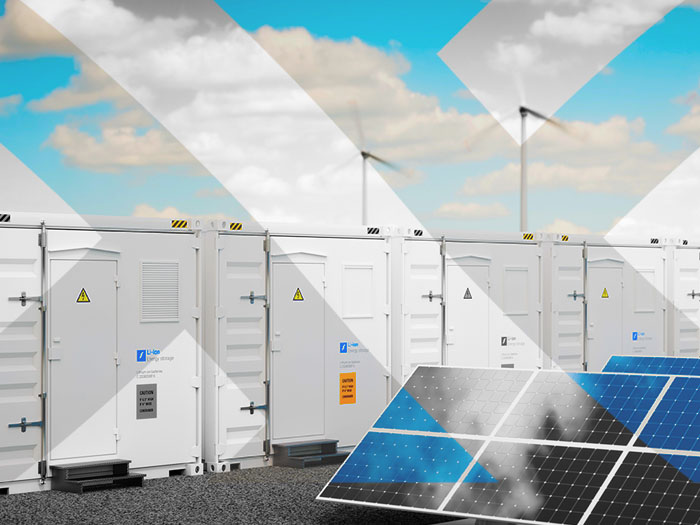News
better business decisions
Posted 3 years ago | 4 minute read

Co-locating long duration battery storage with intermittent renewable generation has enormous potential to revolutionise and decarbonise the UK power grid.
The Longer Duration Energy Storage Demonstration (LODES) Competition, run by the Department for Business, Energy & Industrial Strategy (BEIS) has awarded Locogen and partners, CellCube, GridBeyond, and Blackfinch Energy with £121,400 to assess the techno-economic feasibility of a longer duration energy storage system co-located with an existing Solar PV farm. The aim of which, is to help accelerate the commercialisation of these assets and create dispatchable renewable assets to support the UK’s net zero goals.
The LODES competition forms part of the Net Zero Innovation Portfolio (NZIP) which provides funding for low-carbon technologies and systems. Decreasing the costs of decarbonisation, the Portfolio will help enable the UK to end its contribution to climate change.
Why do we need longer duration energy storage?
At present, when there is an excess of renewable generation from intermittent sources such as wind and solar PV, the electricity output is often curtailed to balance the grid. For new renewable developments, grid constraints are routinely encountered and can often lead to a project becoming unfeasible.
Under utilising renewable energy is and will be a barrier to meeting our net-zero targets. Established battery technologies, such as lithium-ion (Li-ion), are not well suited to co-locate with renewables due to their short charge and discharge cycles as well as degradation over time (approximately a 10-year lifetime depending on cycling).
How is longer duration energy storage better?
Longer duration storage provides the ability to charge and discharge electricity for longer periods of time, more than 4 hours, allowing for a more commercially compelling business case that will support balancing renewables and the UK power grid.
CellCube’s innovative Vanadium Redox Flow Battery (VRFB) has high efficiency over the long term, zero degradation, dynamic response (rapid or slow on-demand) and variable charging cycles from 4 to 12 hours. Co-locating Cellcube’s VRFB with an existing solar PV farm has the potential to create dispatchable and lower-cost renewable electricity.
CellCube’s VRFB has two innovations that have been bench-tested but require prototype demonstration, these include automatic electrolyte rebalancing to extend the useful life of the electrolyte and therefore reduce costs, and overpowering to provide on-demand power e.g., for slow and fast Electric Vehicle Charge Points (EVCPs).
The real case scenario
Blackfinch Energy’s site is a constrained 6MW solar PV farm. The site has the potential to increase capacity but is unable to due to grid constraints. This is a common problem across the UK that needs to be resolved if we are to use more renewable electricity. Short duration batteries (e.g., Li-ion) have limited value to this type of site and are mainly used for frequency deviations in the grid. The site could also benefit from installing EVCPs powered by excess solar PV and/or the stored energy, which can be dissipated by CellCube’s VRFB on-demand, via their innovative overpowering mechanism. GridBeyond will support the project by assessing the potential value accessible by co-locating the VRFB with the solar PV and EVCPs.
The future of the long duration storage market
Despite VRFB products offering far more advantages over Li-ion (they suit a much wider variety of applications, they do not degrade, and can be recycled) they have yet to reach commercialisation and penetrate the market. However, with the help of BEIS funding to assess and demonstrate these products, we are hopeful that the nascent long duration storage market will progress and subsequently flow battery costs will significantly reduce as previously seen with short-duration energy storage batteries.
Energy & Climate Change Minister Greg Hands said
“Driving forward energy storage technologies will be vital in our transition towards cheap, clean and secure renewable energy. It will allow us to extract the full benefit from our home-grown renewable energy sources, drive down costs and end our reliance on volatile and expensive fossil fuels. Through this competition we are making sure the country’s most innovative scientists and thinkers have our backing to make this ambition a reality.”






